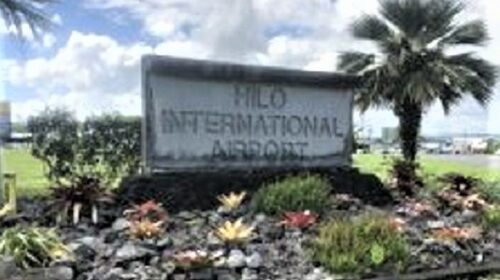National Weather Service update on Hurricane Douglas
The National Weather Service’s latest statement. A Tropical Storm Watch has been issued for Kauai Leeward, Kauai Mountains, Kauai Windward, and Niihau
CURRENT WATCHES AND WARNINGS:
A Hurricane Watch is in effect for Central Oahu, Oahu Koolau, Oahu North Shore, Oahu South Shore, Olomana, Waianae Coast, and Waianae Mountains
A Tropical Storm Watch is in effect for Kauai Leeward, Kauai Mountains, Kauai Windward, and Niihau
A Tropical Storm Warning and Hurricane Watch are in effect for Big Island Interior, Big Island North and East, Big Island Summits, Haleakala Summit, Kahoolawe, Kohala, Kona, Lanai Makai, Lanai Mauka, Leeward Haleakala, Maui Central Valley, Maui Leeward West, Maui Windward West, Molokai Leeward, Molokai Windward, South Big Island, and Windward Haleakala
STORM INFORMATION:
Location: 19.1N 148.4W
About 640 miles east-southeast of Honolulu or about 440 miles east of Hilo
19.1N 148.4W
Storm Intensity 105 mph
Maximum sustained winds: 105 mph
Present movement: West-northwest or 290 degrees at 18 mph
Situation overview
Hurricane Douglas may bring damaging winds, heavy rainfall, and high surf to parts of the state over the weekend and possibly into Monday. Some impacts from Douglas could be experienced as early as tonight, mainly over the eastern end of the island chain. Douglas is forecast to move near or directly over portions of the smaller islands on Sunday. While Maui and the Big Island would be first to experience impacts, do not focus on the exact forecast track or intensity of Douglas at this time, as impacts can occur well away from the tropical cyclone center.
Damaging winds may begin as early as late tonight across parts of Maui and the Big Island, possibly spreading westward to the rest of the state on Sunday. It is important to note that the mountainous terrain of the islands can produce localized areas of highly enhanced winds, even well away from the tropical cyclone center.
Flooding rain will be possible as early as tonight on Maui and the Big Island, and chances for flooding will increase for much of the state on Sunday. The flood threat could persist into Monday for some islands, especially over the western end of the state. Storm total rainfall accumulations of of 5 to 10 inches, with locally higher amounts to 15 inches, will be possible. While the highest rainfall will favor windward and northern facing slopes, leeward and southern facing slopes could also experience flooding.
Large swells arriving ahead of Douglas will produce dangerous surf along exposed east and north facing shores. Seas will build rapidly from east to west across the exposed coastal waters as Douglas approaches and moves through. A combination of higher than predicted water levels, storm surge, and warning-level surf will lead to significant beach erosion, with water potentially overwashing onto vulnerable low-lying coastal roads, especially at and around the daily high tides.
Potential impacts
WIND:
Protect against dangerous wind having possible significant impacts across the State of Hawaii. Potential impacts in this area include:
- Some damage to roofing and siding materials, along with damage to porches, awnings, carports, and sheds. A few buildings experiencing window, door, and garage door failures. Mobile homes damaged, especially if unanchored. Unsecured lightweight objects become dangerous projectiles.
- Several large trees snapped or uprooted, but with greater numbers in places where trees are shallow rooted. Several fences and roadway signs blown over.
- Some roads impassable from large debris, and more within urban or heavily wooded places. A few bridges, causeways, and access routes impassable.
- Scattered power and communications outages, but more prevalent in areas with above ground lines.
SURGE:
Protect against locally hazardous surge having possible limited impacts across portions of the Hawaiian Islands. Potential impacts in this area include:
- Localized inundation with storm surge flooding mainly along immediate shorelines and in low-lying spots, or in areas farther inland near where higher surge waters move ashore.
- Sections of near-shore roads and parking lots become overspread with surge water. Driving conditions dangerous in places where surge water covers the road.
- Moderate beach erosion. Heavy surf also breaching dunes, mainly in usually vulnerable locations. Strong rip currents.
- Minor to locally moderate damage to marinas, docks, boardwalks, and piers. A few small craft broken away from moorings.
Elsewhere across the Hawaiian islands, little to no impact is anticipated.
FLOODING RAIN:
Protect against life-threatening rainfall flooding having possible extensive impacts across the State of Hawaii. Potential impacts include:
- Major rainfall flooding may prompt many evacuations and rescues.
- Rivers and tributaries may rapidly overflow their banks in multiple places. Small streams, creeks, canals, arroyos, and ditches may become dangerous rivers. In mountain areas, destructive runoff may run quickly down valleys while increasing susceptibility to rockslides and mudslides. Flood control systems and barriers may become stressed.
- Floodwaters can enter many structures within multiple communities, some structures becoming uninhabitable or washed away. Many places where flood waters may cover escape routes. Streets and parking lots become rivers of moving water with underpasses submerged. Driving conditions become dangerous. Many road and bridge closures with some weakened or washed out.
TORNADOES:
Little to no impacts are anticipated at this time across the Hawaiian islands.
Precautionary/preparedness actions
EVACUATIONS:
Listen to a local officials for recommended preparedness actions, including possible evacuation. If ordered to evacuate, do so immediately.
For those not under evacuation orders, assess the risk from wind, falling trees, and flooding at your location. If you decide to move, relocate to a safer location nearby. If you do not relocate, help keep roadways open for those under evacuation orders.
OTHER PREPAREDNESS INFORMATION:
Now is the time to complete all preparations to protect life and property in accordance with your emergency plan. Ensure you are in a safe location before the onset of strong winds or possible flooding.
When making safety and preparedness decisions, do not focus on the exact forecast track since hazards such as flooding rain, damaging wind gusts, storm surge, and tornadoes extend well away from the center of the storm.
Always heed the advice of local officials and comply with any orders that are issued. Remember, during the storm 9 1 1 Emergency Services may not be able to immediately respond if conditions are unsafe.
If you are a visitor, be sure to know the name of the city or town in which you are staying and the name of the county in which it resides. Listen for these locations in local news updates. Pay attention for instructions from local authorities.
When securing your property, outside preparations should be concluded as soon as possible before conditions deteriorate. The onset of strong gusty winds or flooding can cause certain preparedness activities to become unsafe.
Closely monitor weather.gov, NOAA Weather Radio or local news outlets for official storm information. Be ready to adapt to possible changes to the forecast. Ensure you have multiple ways to receive weather warnings.
ADDITIONAL SOURCES OF INFORMATION:
- For information on appropriate preparations see ready.gov
- For information on creating an emergency plan see getagameplan.org
- For additional disaster preparedness information see redcross.org



